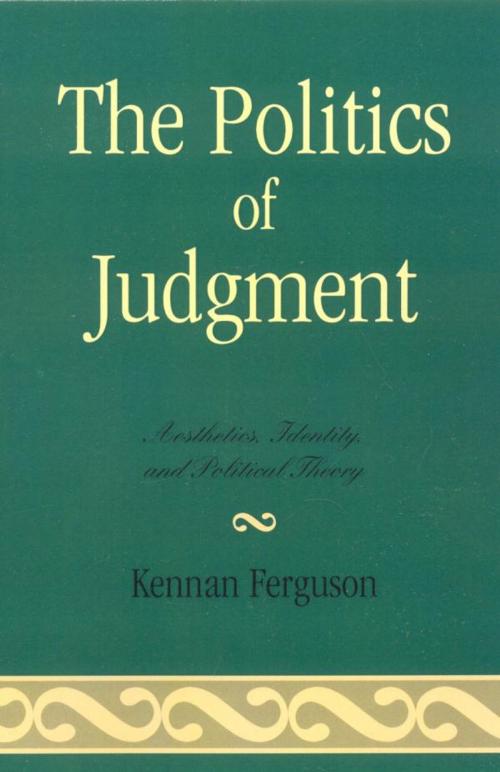The Politics of Judgment
Aesthetics, Identity, and Political Theory
Nonfiction, Social & Cultural Studies, Political Science, Politics, History & Theory| Author: | Kennan Ferguson | ISBN: | 9780739159231 |
| Publisher: | Lexington Books | Publication: | March 6, 2007 |
| Imprint: | Lexington Books | Language: | English |
| Author: | Kennan Ferguson |
| ISBN: | 9780739159231 |
| Publisher: | Lexington Books |
| Publication: | March 6, 2007 |
| Imprint: | Lexington Books |
| Language: | English |
This innovative and theoretically sophisticated book investigates how aesthetic judgment forms the groundwork for understanding political identities. It posits aesthetics as central to conceptions of politics that are based on how people understand the relationship between themselves and larger communities. Ferguson focuses not only on how different theoretical conceptions of political judgment relate to one another, but also on their historical development and potential meaning for contemporary scholarship across the humanities and social sciences. Drawing on recent contributions to philosophy, economics, cultural studies, feminism, psychology, and anthropology, The Politics of Judgment demonstrates how modern political identities depend upon and are formed by aesthetic judgment. Political theorists, social scientists, philosophers and cultural critics will find this book especially useful, though general readers will also be attracted by the author's keen insight into contemporary political questions.
This innovative and theoretically sophisticated book investigates how aesthetic judgment forms the groundwork for understanding political identities. It posits aesthetics as central to conceptions of politics that are based on how people understand the relationship between themselves and larger communities. Ferguson focuses not only on how different theoretical conceptions of political judgment relate to one another, but also on their historical development and potential meaning for contemporary scholarship across the humanities and social sciences. Drawing on recent contributions to philosophy, economics, cultural studies, feminism, psychology, and anthropology, The Politics of Judgment demonstrates how modern political identities depend upon and are formed by aesthetic judgment. Political theorists, social scientists, philosophers and cultural critics will find this book especially useful, though general readers will also be attracted by the author's keen insight into contemporary political questions.















